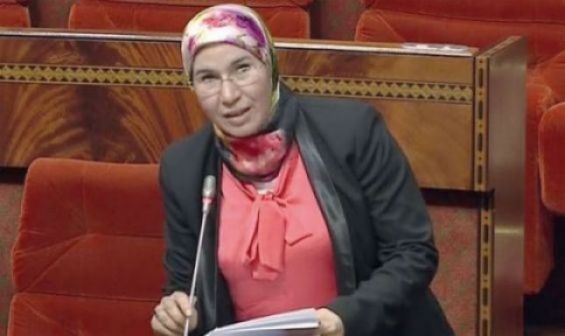Speaking Monday at the House of Representatives, Minister Delegate in charge of Moroccans Living Abroad Nezha El Ouafi said that 466 Moroccans died of the coronavirus abroad. Invited by the Committee on Foreign Affairs, National Defense, Islamic Affairs and Moroccans Living Abroad, the minister revealed that the Kingdom covered the burial expenses of 231 of the deceased.
While stressing that no remains have been repatriated to Morocco during the current health crisis, the minister revealed that although the 2020 Marhaba operation was canceled, the return of Moroccans residing abroad depends heavily on «a series of factors and considerations».
Referring to the Foreign Affairs Minister’s recent statement, El Ouafi indicated that the return of Moroccans residing abroad must take into consideration «the evolution of the epidemiological situation in the Kingdom and in the countries of residence and transit», «the opening of borders» as well as «the measures taken by the transit countries and their willingness to cooperate».
El Ouafi also cited «the health protocol that will be adopted by the competent Moroccan authorities and imposed on Moroccans planning to enter the Kingdom».
Over 45,000 Moroccans living abroad were stranded in Morocco
On the other hand, the Minister Delegate revealed that 45,309 Moroccans residing abroad, and stranded in Morocco, were able to return to their countries of residence. «The remaining number is low when compared to those who have left Morocco», El Ouafi said, adding that on July 13 and 20, 1,800 Moroccans living abroad will be repatriated from Morocco.
As for the case of Moroccans stranded abroad, on which the government is strongly criticized, Nezha El Ouafi said that embassies and consulates have allocated financial support to 7,106 Moroccans, adding that the support also included accommodation, meals, psychological support, medicines and medical treatment.
Morocco has managed to repatriate, as of July 1, 10,744 citizens out of 40,172 Moroccans stranded abroad. These nationals were brought home via 74 flights set up by the Moroccan authorities.
On the thorny issue of preparing lists of Moroccan returnees, and the controversy over the repatriation of people who are not in a vulnerable situation, the minister assured that 80% of the returnees were in the need of repatriation.
«The remaining 20% are citizens who have means, but who are in difficult humanitarian situations, taking into account their age, family situation or state of health, which requires their repatriation as a priority», she stressed.





 chargement...
chargement...













